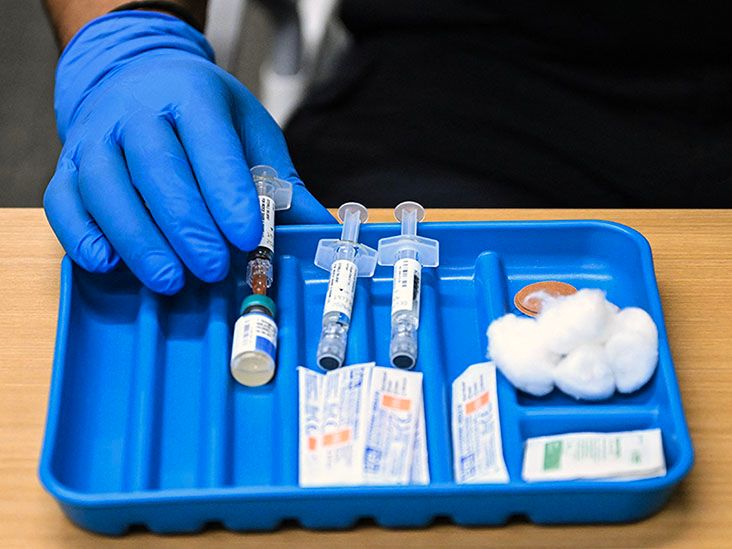The informed consent model involves healthcare professionals providing information to people so they can make informed decisions about their own healthcare.
For transgender adults, this model enables more straightforward access to hormone therapy than previous models did.
Informed consent means a person understands the potential risks, benefits, and alternatives of a medical intervention. This educates and empowers a person to make informed decisions about their body.
Informed consent does not involve coaching or persuading people to make medical decisions. Many other medical treatments already operate according to the informed consent model.
This article looks at what informed consent is, what the informed consent model is for hormone therapy, and how it differs from older models. It also looks at informed consent for people under 18 years old and ways of finding care.

Informed consent is the practice of healthcare professionals disclosing enough information for a person to make informed healthcare decisions. This typically involves discussing the benefits, risks, and side effects of a healthcare decision as well as reasonable alternatives.
The informed consent model allows people to be actively involved in their healthcare decisions while respecting the four pillars of medical ethics:
- nonmaleficence (to do no harm)
- beneficence (to act in the patient’s best interests)
- respect for autonomy
- justice
Under informed consent, a healthcare professional makes recommendations and provides reasoning for them.
However, the person’s decision whether to undergo a recommended procedure or intervention
Hormone therapy (HT) is a facet of gender affirming care, which is an umbrella term for a set of therapies that improve the well-being of transgender people.
Not every trans person wants HT, but those who do can face significant barriers to accessing it.
However, when healthcare institutions apply the informed consent model, it allows trans adults to access care, such as HT, more readily.
Informed consent is a cornerstone of
Older models for gender affirming care, such as the Standards of Care (SOC) model, often require transgender people to seek psychological assessment to determine their suitability for the therapies they want.
The World Professional Association for Transgender Health (WPATH) created the SOC model in 1979. The aim was to create the first standardized guidelines on transgender care.
However, until the 7th edition of the SOC, these guidelines required people to have a lengthy therapeutic relationship with a mental health professional before they could access care.
The WPATH has since revised the SOC guidelines. Newer versions acknowledge informed consent but still emphasize the need for evaluation of mental stability and a diagnosis of gender dysphoria before a person can get gender affirming care.
Because of this, some people criticize the SOC model for gatekeeping and shifting the responsibility of finding healthcare professionals for approvals to transgender people.
Many researchers and activists advocate for the informed consent model rather than the SOC model.
In most cases, informed consent does not apply to people
In the United States, people under age 18 are considered minors, and a parent or legal guardian is responsible for decisions around their healthcare. A parent or guardian must permit “informed permission” for medical treatments.
There are a few exceptions where people under 18 can become emancipated from their parent or legal guardian. As a result, informed consent may apply when a minor is:
- married
- a parent, whether married or not
- serving in the military
- able to prove financial independence
The laws about emancipation vary from state to state, though, as do the rules about who can access gender affirming care and at what age.
Many states have banned or severely limited minors’ access to gender affirming medical care. The bans pose a significant threat to the mental health of transgender youth.
A large 2022 study including over 11,000 transgender and nonbinary youth between 13 and 24 years old found that HT had links to lower rates of recent depression, thoughts of suicide, and suicide attempts.
Even when care is limited, people can still support trans and nonbinary youth by:
- respecting their correct pronouns, chosen name, or identity
- creating a safe and accepting environment
- learning about issues facing transgender people
- respecting their wishes regarding gender disclosure
- learning about signs of mental health conditions that may affect them
- helping them access mental health support when necessary
A person may find medical establishments that follow informed consent care for LGBTQIA+ people using the following resources:
- LGBTQ+ Healthcare Directory
- The OutList LGBTQ+ Affirming Healthcare Directory
- Los Angeles LGBT Center in Los Angeles
- Howard Brown Health in Chicago
- Callen-Lorde in New York
- Fenway Health in Boston
- A Google map of worldwide informed consent medical establishments, compiled by trans activist and journalist Erin Reed
Below are answers to common questions about HT.
Do you need a referral letter for HRT?
A person does not require a referral letter with the informed consent model if they are over 18 years old.
However, if the medical establishment does not follow the informed consent model, a person may require a referral letter or have to fulfill other requirements.
Can a doctor deny you HRT?
A doctor may deny HRT to an adult if they do not follow the informed consent model.
Under certain circumstances, doctors also
However, a 2023 journal article notes that trans people can also face barriers to gender affirming healthcare as a result of inadequate knowledge from doctors, gatekeeping practices, and discrimination.
The informed consent model can help people gain better access to gender affirming healthcare, which can include hormone therapy.
The model involves providing a person with enough knowledge to empower them to make informed decisions about their own care. It applies to adults but not to minors, who need permission from parents or legal guardians.
Healthcare professionals who follow the informed consent model can help more people access gender affirming care, potentially reducing waiting times and improving patients’ mental health.
LGBTQIA+ resources
To discover more evidence-based health information and resources for LGBTQIA+ individuals, visit our dedicated hub.


